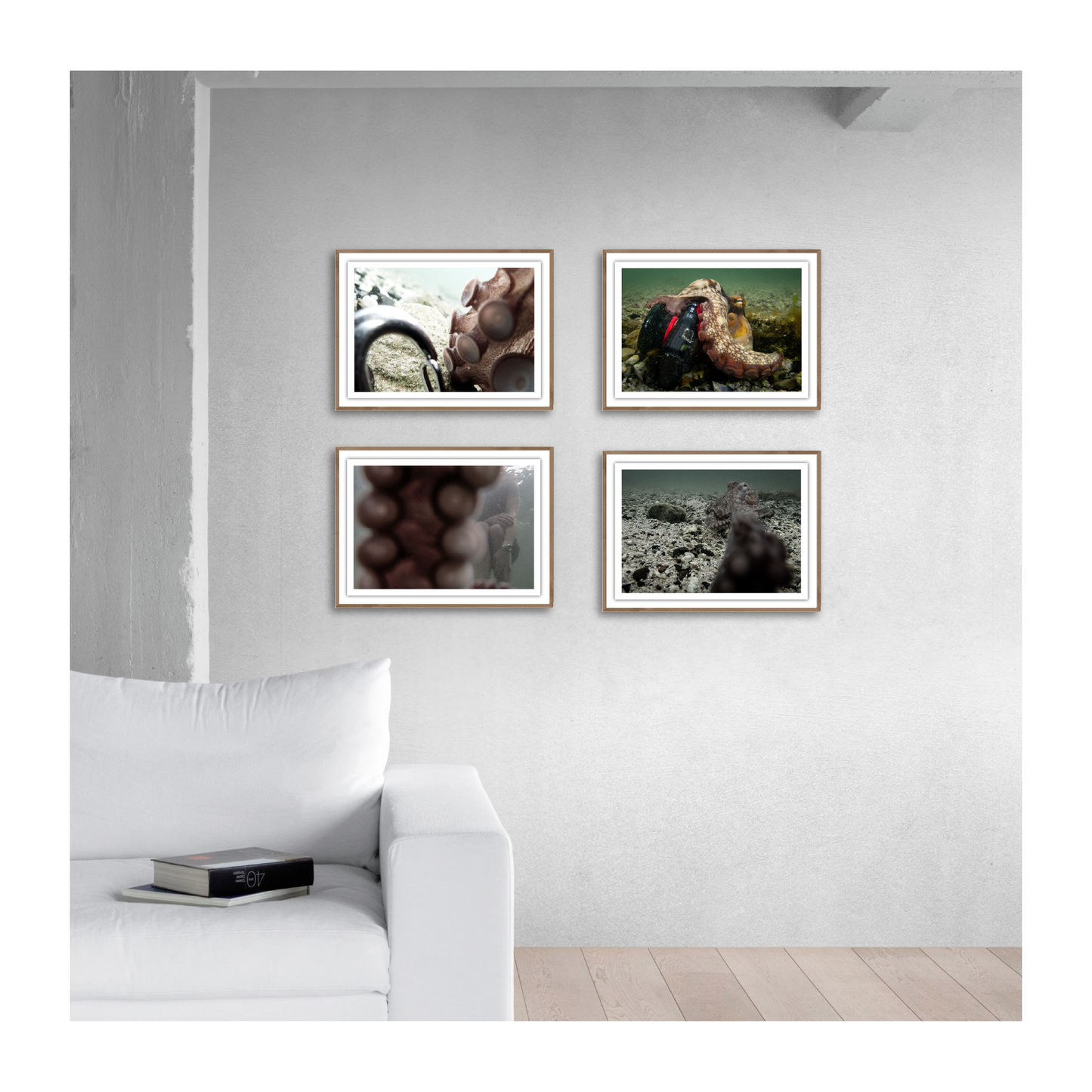Craig Foster
Single Edition Photographic print
The World Looks Back
The World Looks Back
We are all familiar with the Oscar winning documentary “My Octopus Teacher”, but only so much could be explored in the Netflix film, whose lead protagonist is Craig Foster and an Octopus. Yet, there was much more to the octopus and its world which lies beneath the film.
In this series, a collaboration between an octopus and Craig Foster, they explore the moment in which the octopus took the camera and looked back at Craig. In these series of images, we see from the perspective of the octopus, who lives in a deeply tactile and curious relationship with the world. We were given a moment to be enveloped in soft fluid like caresses of its tentacles, and look back at ourselves. Our worlds are populated with meaning and knowledge, that is predominately created using our own bodies, and points of reference.
Since the release of the film, along with its incredible accolades and responses, it did receive some criticism for centering the ‘white male’ gaze of the world, leaving little room for other ways of knowing, being and doing in relation to the ocean. Although the film does not hold all these realities, in these photographs, we explore the possibilities of what is needed to make ourselves vulnerable and open to be seen in new ways, to be receptive to other ways of knowing, being and doing.
The Poet Fernando Pessoa wrote “Man shouldn’t be able to see his own face – there’s nothing more sinister. Nature gave him the gift of not being able to see it, and of not being able to stare into his own eyes. Only in the water of rivers and ponds could he look at his face. And the very posture he had to assume was symbolic. He had to bend over, stoop down, to commit the ignominy of beholding himself. The inventor of the mirror poisoned the human heart.”
It is this humble act, of handing over the camera, stooping down and allowing ourselves to be seen in the eyes of the other, that these images conjure. We are asked what it would take to let the world look back at us, to be open to scrutiny, to be held accountable in our delusional privilege of human exceptionalism in a world that does not only belong to humans. How might we hand over the tools and instruments for meaning-making and subsequent decision making over to others.



